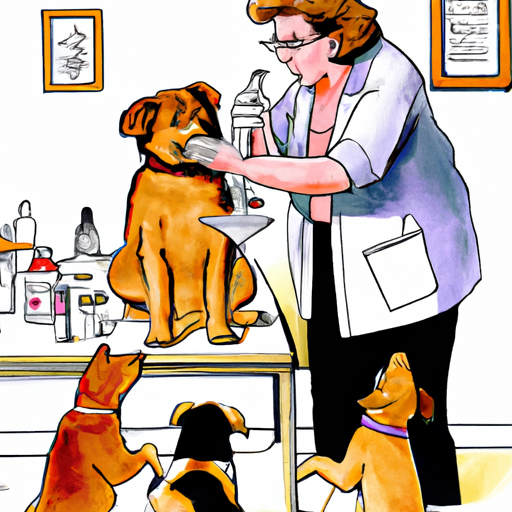Caring for a pet is a responsibility that demands your attention, your time, and your heart. As a caregiver, you may find yourself constantly wondering how to best protect your furry friend from any potential harm. One critical aspect of this responsibility is ensuring your pet is up to date with their vaccinations. One such vaccination is against the parvovirus, a highly contagious viral illness. This piece will guide you through the frequency of parvo shots for dogs.
1. Understanding Parvovirus
Parvovirus, commonly known as parvo, is a highly infectious disease that affects dogs. It’s particularly severe in puppies. The virus attacks rapidly dividing cells in a dog’s body, most severely affecting the intestinal tract. Parvo can also damage the heart muscle in very young and unborn puppies, often leading to lifelong cardiac problems.
2. The Importance of Parvo Shots for Dogs
Vaccination is the most effective way to protect your dog from parvovirus. It’s crucial to understand the frequency of these shots and the consequences of not adhering to the right schedule.
- Puppies: Puppies should receive their first parvo shots at six to eight weeks old. The shots are then administered every three to four weeks until they’re about 16 weeks old.
- Adult dogs: Adult dogs will need a booster shot one year after their puppy shots, and then every one to three years thereafter.
| Age of Dog | Frequency of Parvo Shots |
|---|---|
| 6-8 weeks | First Shot |
| Every 3-4 weeks until 16 weeks | Follow-up Shots |
| 1 year after puppy shots | Booster Shot |
| Every 1-3 years thereafter | Regular Booster Shots |
3. The Consequences of Skipping Parvo Shots
Failing to vaccinate your dog can expose them to the risk of catching parvo, which can be life-threatening. Parvo is highly contagious and can be transmitted by any person, animal, or object that comes in contact with an infected dog’s feces.
4. The Benefits of Regular Parvo Shots
Regular parvo shots help maintain your dog’s immunity against the disease. Vaccination can also minimize the severity of the disease if your dog does become infected. A vaccinated dog that contracts parvo will generally have less severe symptoms and a better chance of survival.
5. Misconceptions Around Parvo Shots
There are a few misconceptions about parvo shots that need to be dispelled:
- Parvo shots are not just for puppies: While puppies are more susceptible to parvo, adult dogs can still contract the virus if they’re not vaccinated.
- Indoor dogs are not immune to parvo: Even if your dog doesn’t go outside often, they can still contract parvo. The virus can be brought into the house on shoes, clothes, and other objects.
Frequently Asked Questions
Q1: Can my dog get parvo even if they’re vaccinated?
A1: Yes, but it’s less likely and the symptoms are typically less severe.
Q2: Are there any side effects to the parvo vaccine?
A2: Side effects are rare but can include mild fever and decreased appetite.
Q3: How is parvo transmitted?
A3: Parvo is transmitted through direct contact with an infected dog or by indirect contact with a contaminated object.
In conclusion, the welfare of your sweet companion is in your hands. Regular parvo vaccinations are a vital part of ensuring their health and happiness. Regular vet visits and adherence to the vaccination schedule can help you create a safe and nurturing environment for your pet.



